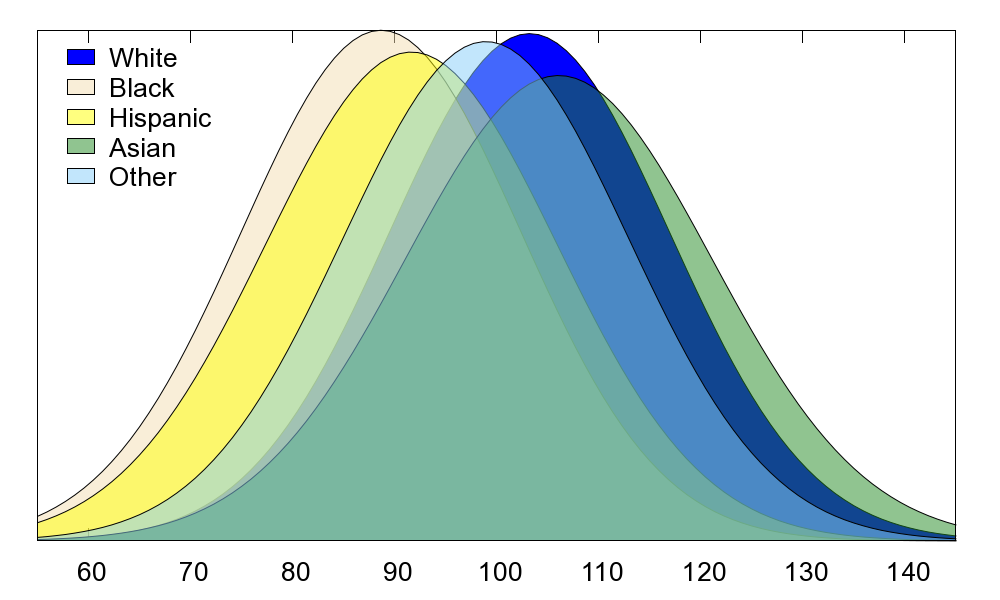Disclaimer: I’m not some highfalutin expert working at a think tank or a university or whatever, but I like to pontificate on stuff that isn’t really quantifiable or decidable. That doesn’t mean you shouldn’t listen to me. It does, however, mean that you shouldn’t take anything I say too seriously, much as you should be very skeptical of anything an economist or psychologist or sociologist says. I have repeatedly made the point that such “expertise” is largely spurious. Whenever anyone, expert or otherwise, philosophizes to you, you ought to weight what they say on its own merits and not worry too much about who they are.
I am relatively skeptical of social science. I don’t think it’s merit-less, per se, but it certainly doesn’t merit the term “science”. Social fields are very speculative, with replication failures pointing to broadly flawed methodology. As I’ve pointed out before, the social fields confer a veneer of authority that makes them ripe for abuse; more fundamentally, social research can justify decisions made by elites, which creates an incentive to designate such fields as science. It’s also been shown that people with Ph.Ds in political science are not any more predictive than reasonably well-educated people who lack that putative “expertise”. That is to say, we feel that we ought to call things like psychology sciences because doing so means we can use its findings to lend scientific authority to our own viewpoint. There is still no working model of human cognition, nor of the economy, nor, a fortiori, for society. I’m perfectly fine with according some authority to social fields, but we ought to stop calling them “social science” because that implies that they have a degree of authority approaching physics or chemistry. Their ideas ought to be taken as something interesting to chew on and consider, not the last word on a topic. Or anything approaching the last word.
I think there is some validity to IQ and its ability to predict things. It’s one of the very few findings in social science that does not fail either to replicate or get us beyond common sense. IQ seems to predict educational and professional outcomes with a surprising degree of consistency, and it is very replicable. However, I can’t just use special pleading to exempt IQ from my skepticism of social science, so something has to give. Do I say that social science has more validity than I thought it did, or try to fit the apparent validity of IQ into my skepticism by reducing it to common sense somehow?
Image from Wikimedia Commons
I’ve puzzled over this for a little while, and I’ve come to this conclusion: IQ does get us beyond common sense, but only by an inch, as it were.
I think that it’s fairly commonsensical to say something like this: “If you give ten people a math test, and they all have roughly the same level of mathematical understanding, then their performance on the test will, all things being equal, correlate with their intelligence.” If you’re good at taking math tests, you’re probably smart. If you’re not good at them, you might not be as smart. So far, this is just common sense, and it also is born out by the data insofar as social science has data: standardized tests, such as the SAT, LSAT, GRE, and MCAT, all correlate heavily with IQ tests.
The place where IQ gets us past common sense is by employing a clever trick with the math. The problem is that performance on math is greatly affected by math background. See, if you give a really smart person a test on differential equations, but that person has never bothered to study math (maybe they just don’t care for it), they’ll probably bomb the test, ‘cause you need lots of math background to understand differential equations and sheer smarts doesn’t cut it. You have to have prior education. You have to have some background. The clever trick of IQ tests is that they figured out a bunch of mathy-type questions that don’t need any background. Shape rotation, for example, doesn’t require as much math background as something like linear algebra or topology. Lots and lots of people understand how to pick up an object and rotate it, and doing the mental equivalent of that isn’t a big jump. So IQ gives us a sort of math test that we can give people without assuming that they’ve had X years of math classes.
And that’s about it. That’s as far as IQ gets us. I’m not too hung up on the exact numbers. Maybe five points is significant, but I kind of doubt it. I’m sure that intelligence researchers will insist that their findings are very rigorous and all relevant research show blah blah blah snore, but I don’t care that much to be honest. All of the jargon and supposed rigor around IQ doesn’t get us much further than common sense — and that’s exactly what we should expect from good social research. Not some astonishing discovery, but an incremental advance that takes us slightly beyond where common sense leaves off. Anything more than that should trigger skepticism.
So in summary: yes, I think IQ is valid, and it does represent an incremental advance past common sense. But an increment is just an increment. I speculate that we may not get another incremental advance until the first one has been absorbed into common sense.

